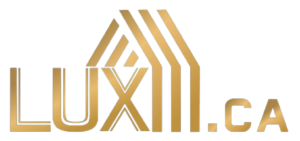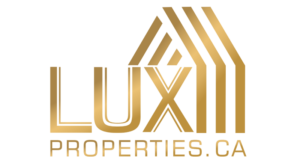Mortgage for Buying Houses in Toronto
Mortgage for Buying Houses in Toronto allows buyers to finance their home purchase without paying the full price upfront. Toronto’s real estate market is competitive, making mortgages a crucial part of home ownership. Getting a mortgage is a big financial decision. It requires careful planning and research. Fixed-rate mortgages offer stability, while variable-rate mortgages might save money. Always check interest rates and pre-approval options. Remember to budget for down payments, insurance, and closing costs. With the right mortgage, buying a house in Toronto becomes more affordable and manageable.
Types of Mortgage for Buying Houses in Toronto
Buying a house in Toronto often requires a mortgage. Various types of mortgages are available. It’s important to choose the right one.
Fixed-Rate Mortgage for Buying Houses in Toronto
A fixed-rate mortgage has a set interest rate. The rate remains the same throughout the loan term. Monthly payments are predictable. It’s ideal for buyers wanting stability. Interest rates are usually higher than variable rates. However, you avoid market risks.
Variable-Rate Mortgage for Buying Houses in Toronto
Variable-rate mortgages have interest rates that change. Rates adjust based on the market. Payments may increase or decrease. This type offers lower initial rates. It suits buyers willing to take risks. You might pay less if rates drop. But payments can rise unexpectedly.
Open Mortgage for Buying Houses in Toronto
An open mortgage allows early repayment. You can pay off the loan faster without penalties. It’s flexible but comes with higher rates. It’s great for buyers expecting lump sum payments. This option provides financial freedom.
Closed Mortgage for Buying Houses in Toronto
Closed mortgages have strict terms. You cannot repay early without penalties. They usually have lower interest rates. It’s a good choice for long-term homeowners. Predictable payments help with budgeting. But it lacks flexibility.
Conventional Mortgage for Buying Houses in Toronto
A conventional mortgage requires a 20% down payment. It does not need mortgage insurance. This type is common for those with strong credit. You need enough savings for the down payment. It reduces monthly costs without insurance.
High-Ratio Mortgage for Buying Houses in Toronto
High-ratio mortgages have down payments under 20%. They require mortgage insurance. This type helps first-time buyers with less savings. Insurance protects lenders from defaults. It increases the overall cost of the loan.
Second Mortgage for Buying Houses in Toronto
A second mortgage is an additional loan on your home. It’s useful for renovations or emergencies. The interest rate is usually higher. It’s riskier since the lender is second in line for payments. Use this option with caution.
Home Equity Line of Credit (HELOC)
HELOC is a revolving credit line. It’s based on your home’s equity. You can borrow as needed up to a limit. The interest rate is variable. It’s good for ongoing expenses. Payments depend on the amount used.
Reverse Mortgage for Buying Houses in Toronto
Reverse mortgages are for homeowners aged 55 and older. You can access your home’s equity without selling. No payments are needed until you move or sell. It’s helpful for retirees needing extra income. It can affect the value of your estate.
Choosing the Right Mortgage for Buying Houses in Toronto
Selecting the best mortgage depends on your situation. Consider your income, savings, and risk tolerance. Consult a mortgage advisor for personalized advice. It helps you understand terms and options better.
Mortgages are crucial for buying homes in Toronto. Each type has unique features and benefits. Research and understand them before making a decision. This way, you can choose the best mortgage for your needs.
Mortgage for Buying Houses in Toronto: How to Qualify
Check Your Credit Score
A good credit score is essential. Most lenders require a score of 650 or higher. A high credit score shows you are financially responsible. It also helps you get better interest rates. Check your score before applying. You can use online services to review it.
Save for a Down Payment
Down payment is a key requirement. In Toronto, the minimum is 5% for homes under $1 million. For properties above this value, you need at least 20%. The more you save, the better your mortgage options. A larger down payment reduces your loan amount.
Stable Employment and Income
Lenders look for stable employment. They want to see consistent income. Provide proof of your job history. Most lenders ask for two years of employment records. If you are self-employed, show tax returns. Your income must be sufficient to cover mortgage payments.
Debt-to-Income Ratio
Debt-to-income ratio (DTI) is important. It compares your monthly debt to your income. Lenders prefer a DTI under 35%. A lower DTI shows you can handle new debt. High debt levels may reduce your mortgage options. Pay off existing debts before applying.
Get Pre-Approval
Pre-approval speeds up the home-buying process. It shows you are a serious buyer. Pre-approval provides a loan estimate. It helps you know your budget. Submit documents like income proof and credit reports. The lender checks your financial status. Pre-approval is valid for up to 120 days.
Choose the Right Lender
Research different lenders in Toronto. Banks, credit unions, and mortgage brokers offer loans. Compare interest rates and terms. Some lenders specialize in first-time buyers. Others provide flexible payment plans. Pick a lender that fits your needs.
Understand Types of Mortgage for Buying Houses in Toronto
There are various mortgage types. Fixed-rate mortgages have stable payments. Variable-rate mortgages change with market rates. Choose based on your risk tolerance. Fixed rates offer stability. Variable rates may save you money if interest rates drop.
Submit Your Application
Gather all required documents. These include your credit report, proof of income, and ID. Fill out the mortgage application carefully. Double-check for errors. Submit it to your chosen lender. Be ready to answer additional questions.
Prepare for an Appraisal
Lenders usually require a property appraisal. It determines the home’s market value. The appraisal ensures the loan amount matches the property value. If the appraisal is lower than expected, your loan might be reduced. Choose an experienced appraiser for accuracy.
Finalize Your Mortgage Agreement
If approved, review the mortgage terms. Check the interest rate and repayment plan. Ensure there are no hidden fees. Discuss penalties for early repayment. Once satisfied, sign the mortgage agreement. Your lender then disburses the loan. You can now proceed with the home purchase.
Maintain Good Financial Habits
After getting the mortgage, maintain good financial habits. Make payments on time. Avoid taking new debt. This protects your credit score. Good habits ensure a smooth mortgage experience. It also helps if you decide to refinance later.
Following these steps can improve your chances of qualifying for a mortgage in Toronto. Be patient and stay organized. A successful mortgage application requires careful planning and preparation.
Insurance of Mortgage for Buying Houses in Toronto
Mortgage insurance plays a significant role in the home-buying process. It helps protect both the lender and the borrower. Understanding its different types and requirements is essential when purchasing a home in Toronto.
What is Mortgage Insurance?
Mortgage insurance protects the lender. It covers them if the borrower defaults on the loan. It is usually required when the down payment is less than 20%. The borrower pays the insurance premiums. This increases the monthly mortgage payment. It helps the lender reduce risk.
Types of Mortgage Insurance
There are several types of mortgage insurance. Each one serves a different purpose. Knowing the differences helps you make better choices.
a) CMHC Insurance
Canada Mortgage and Housing Corporation (CMHC) offers this insurance. It is mandatory for high-ratio mortgages. If the down payment is under 20%, CMHC insurance is required. It allows borrowers with lower savings to buy a home. Premiums can be added to the mortgage amount.
b) Private Mortgage Insurance (PMI)
Private lenders may offer PMI. It’s similar to CMHC insurance but provided by private companies. PMI is also for buyers with low down payments. It helps reduce the lender’s risk. Rates may vary based on the borrower’s credit score.
c) Title Insurance
Title insurance protects against ownership disputes. It covers issues like title defects or fraud. It’s usually required by the lender. The borrower pays a one-time premium. It ensures a smooth transfer of property ownership.
Who Needs Mortgage Insurance?
Mortgage insurance is required for high-ratio mortgages. It’s common for first-time home buyers. Buyers with less than 20% down payment need it. It makes home ownership possible with lower savings. Buyers with a strong credit history may have lower premiums.
How Much Does Mortgage Insurance Cost?
The cost depends on the down payment amount. The lower the down payment, the higher the insurance premium. Premiums are calculated as a percentage of the mortgage. It typically ranges from 2% to 4% of the loan amount. The premium can be paid upfront or added to the mortgage.
Benefits of Mortgage Insurance
Mortgage insurance allows buyers to enter the market sooner. It reduces the risk for lenders. It helps first-time buyers with limited savings. Borrowers can purchase homes with as little as a 5% down payment. It increases the chance of mortgage approval.
Disadvantages of Mortgage Insurance
Mortgage insurance increases the overall cost. It adds to monthly mortgage payments. Also, It does not protect the buyer directly. And, It only benefits the lender. The added cost can affect affordability. It’s an extra expense many buyers wish to avoid.
How to Avoid Mortgage Insurance
Making a 20% down payment helps avoid mortgage insurance. It requires more savings upfront. This can be challenging in Toronto’s expensive market. Some buyers choose to save longer. Others may use a co-signer to qualify without insurance.
Mortgage insurance is a crucial part of buying a home in Toronto. It helps reduce lender risk. It also makes homeownership possible for those with smaller down payments. Understanding the types and costs can help you plan better. It’s important to factor in these costs when budgeting for your home
Pre-Approval of Mortgage for Buying Houses in Toronto
What is Mortgage Pre-Approval?
Mortgage pre-approval is an initial evaluation. It shows how much loan you can get from a lender. It also estimates your interest rate. Pre-approval helps you understand your budget. It makes the home-buying process faster and easier.
Why Get Pre-Approved?
Pre-approval offers many benefits. It shows sellers you are a serious buyer. It helps you know your price range. Pre-approval may give you better negotiating power. It can also lock in an interest rate for up to 120 days. This protects you from rate increases.
Required Documents for Pre-Approval
Lenders need several documents for pre-approval. Provide proof of income, such as pay stubs or tax returns. You will also need your credit report. Include bank statements and identification. Self-employed buyers need additional paperwork. Be ready to submit all necessary documents promptly.
Credit Check and Score
Lenders perform a credit check. Your credit score plays a major role. A high credit score increases your chances of approval. Scores above 650 are preferred. A good score also helps you get a lower interest rate. Pay off debts and avoid new credit before applying.
Income Verification
Lenders need proof of stable income. They usually ask for employment records from the past two years. Provide recent pay stubs and a letter from your employer. Self-employed buyers need to show tax returns. Lenders want to see steady earnings.
Debt-to-Income Ratio
Lenders check your debt-to-income ratio (DTI). This ratio compares your monthly debt payments to your income. A DTI below 35% is ideal. High DTI may reduce your loan amount. Paying off debts can help lower your DTI.
The Pre-Approval Letter
If approved, the lender issues a pre-approval letter. This letter shows the loan amount you qualify for. It also includes the estimated interest rate. The pre-approval letter is valid for up to 120 days. Use this letter when making offers on homes.
Shopping for a Home
With pre-approval, you can start looking for homes. Focus on properties within your budget. Pre-approval helps narrow your search. It saves you time and effort. You can confidently make offers on homes. Sellers prefer buyers who are pre-approved.
Benefits of Pre-Approval
Pre-approval gives you an advantage in the market. It shows you are a serious buyer. It speeds up the mortgage process. Pre-approval helps avoid delays in closing. It can also lock in an interest rate, protecting you from rate hikes.
Common Mistakes to Avoid
Avoid changing jobs during the pre-approval process. Do not make large purchases on credit. This can affect your credit score. Do not take new loans or credit cards. Avoid missing payments on current debts. These actions may affect your pre-approval status.
Renewing Pre-Approval
Pre-approval letters expire after 90 to 120 days. If you have not found a home, renew the pre-approval. Contact your lender for an extension. Update your financial information. Keep your credit and income stable for a smooth renewal.
Final Steps After Pre-Approval
Once you find a home, submit your offer. The pre-approval letter strengthens your bid. If accepted, finalize your mortgage application. The lender reviews the property. They may require an appraisal. If everything checks out, proceed to closing.
Mortgage pre-approval is an important step in buying a home in Toronto. It prepares you for a successful purchase. It also gives you peace of mind. Take time to gather your documents and choose the right lender. This will help you get pre-approved with ease.
Mortgage for Buying Houses in Toronto: Closing Costs and Interest Rates
Getting a mortgage in Toronto is a big financial commitment. Two important factors to consider are closing costs and interest rates. Both can significantly affect the total cost of your home.
Understanding Closing Costs
Closing costs are fees paid when finalizing your home purchase. They are separate from the down payment. Many buyers overlook these costs. They can add up to 3-5% of the home’s purchase price. It’s essential to budget for them.
a) Land Transfer Tax
Land Transfer Tax is a major closing cost. In Toronto, buyers pay both provincial and municipal land transfer taxes. The amount is based on the home’s price. First-time buyers may qualify for rebates. This can reduce the total tax payable.
b) Legal Fees
Legal fees cover the cost of hiring a lawyer. A lawyer ensures the property title is clear. They help with signing documents and transferring ownership. Legal fees typically range from $1,500 to $3,000. It’s a necessary expense for all home buyers.
c) Home Inspection Fees
A home inspection is optional but recommended. It helps identify potential issues with the property. The inspection fee is usually between $300 and $500. It’s a small price to pay for peace of mind. It can save you from costly repairs later.
Interest Rates on Mortgage for Buying Houses in Toronto
Interest rates are a key factor in determining your mortgage cost. They affect your monthly payment and the total amount paid over time. Even a small change in rates can make a big difference.
a) Fixed-Rate Mortgages
Fixed-rate mortgages have a stable interest rate. The rate remains the same for the entire term. It offers predictable monthly payments. This is ideal for buyers who want stability. It’s a popular choice, especially when rates are low.
b) Variable-Rate Mortgages
Variable-rate mortgages have fluctuating interest rates. The rate changes with the prime rate set by the bank. Monthly payments can go up or down. It can be risky but may offer lower rates initially. It’s best for buyers comfortable with uncertainty.
c) Prime Rate and Discount Rates
The prime rate is set by the Bank of Canada. It influences mortgage rates across the country. Lenders offer a discount off the prime rate for mortgages. The discount rate depends on the borrower’s credit score and down payment. A strong credit history can secure better rates.
How Interest Rates Affect Your Mortgage for Buying Houses in Toronto
Interest rates directly impact your mortgage payments. Higher rates mean larger payments. Over time, this increases the total cost of your home. A small difference in the rate can result in thousands of dollars in extra payments. It’s important to shop around for the best rate.
Tips to Lower Your Interest Rate
There are ways to lower your interest rate. A larger down payment reduces risk for lenders. This may result in a lower rate. Improving your credit score also helps. Paying off debts and avoiding late payments boosts your score. Comparing rates from different lenders can save you money too.
Understanding closing costs and interest rates is vital when getting a mortgage in Toronto. Both can significantly affect your budget. Planning for these expenses helps avoid surprises. It also ensures a smoother home-buying process. Making informed decisions can save you money in the long run.


